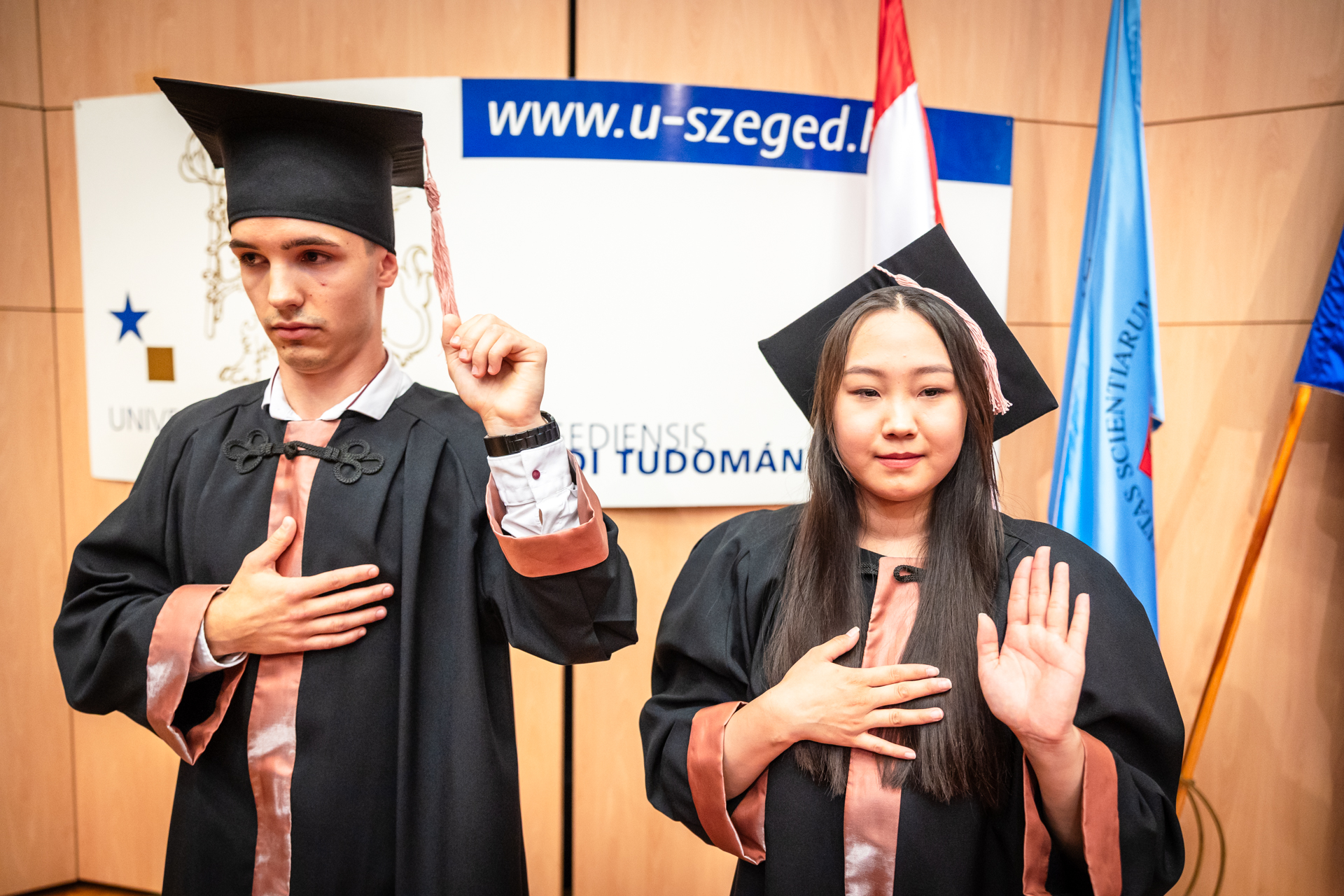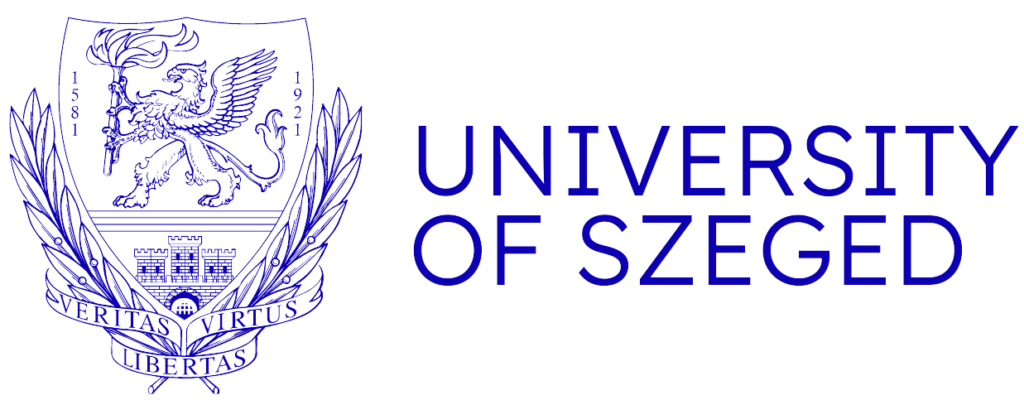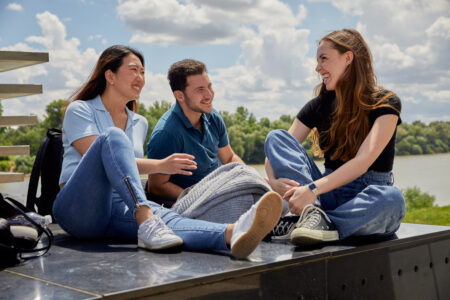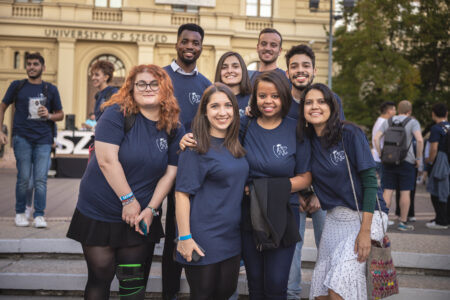When you think of Szeged, Hungary, images of sunny days and stunning architecture might come to mind. But there’s more to this city than these charms – Szeged is one of the best university towns in Europe, with the University of Szeged (SZTE) at the centre of it all.
As an internationally recognised public research institution, the possibilities are seemingly endless here. SZTE is where you can craft the future you’ve always dreamt of. Students benefit from advanced research facilities, free access to Coursera, and over 80 degree programmes spanning from agriculture to health.
Or suppose you’re interested in business, like Khalima Lebusova, an MSc International Economy and Business student, and Dr. Timothy Yaw Acheampong, an alumnus of the Doctoral School in Economics. In that case, you can join the Faculty of Economics and Business Administration.

Acheampong (right) has experienced firsthand the Faculty’s dedication to excellence and innovation, both as a student and now as a lecturer. Source: University of Szeged
The Faculty of Economics and Business Administration is a highly-ranked training institution for economists. It has helped over 10,000 students embark on careers not just in Hungary but across the globe.
All graduates have one thing in common: a strong foundation in theory and practice. This is because the faculty offers English-taught programmes at the bachelor’s, master’s, and doctoral levels, where students learn core economic concepts and continue to build on that foundation as they progress.
You start with a bachelor’s degree in Business Administration and Management or Tourism and Catering, move to a master’s degree in International Economy and Business, and ultimately pursue doctoral studies in Economic Policy and Globalisation or Ecological Economics. And if you’re ready to make an even bigger impact, you could even join the faculty as a lecturer or researcher after completing your PhD.
As you advance through your studies, you will learn from dedicated lecturers who genuinely care for your growth. Lebusova knows this well – she spent her undergraduate years here and stayed on for her MSc. Throughout both programmes, she’s seen how lecturers always put students first. “Our lecturers went the extra mile, using pop culture to make concepts easier to understand,” says Lebusova. “I also appreciate that they bring real-world industry practices, which really prepares us for the future.”
Partnerships with companies and civil society organisations reinforce the faculty’s commitment to producing industry-ready graduates. For example, you can network with industry experts who contribute to the curriculum’s continuous improvement through field trips and guest lectures.
International opportunities are available as well. Acheampong first joined the Faculty of Economics and Business in 2018 as a PhD student with support from the Stipendium Hungaricum Scholarship.
He made the most of his time at the faculty, growing both professionally and personally. “As a student, I got to attend international conferences. There are also exchange programmes, short-term and semester-long mobility opportunities, internships abroad, international competitions, and summer schools where you can meet students from the European Union,” he says.
Other scholarship options include the Scholarship Programme for Christian Young People, the Hungarian DIASPORA Scholarship, and more. Alternatively, you can work at SZTE’s partner companies, like Lebusova, who’s interning at the International Office.

Students can volunteer to mentor first-year students and help them settle into university life. Source: University of Szeged
While there are plenty of reasons why international students choose to study at SZTE, one that stands out is its welcoming and supportive community. SZTE is home to 24,000 students, nearly 5,000 of whom are from over 130 countries.
You might expect to feel lost in the crowd, but that’s far from the case. SZTE and the faculty have created a close, student-centred environment where everyone feels at home.
“Even before I arrived, I felt at ease thanks to my mentor,” says Lebusova. “I was startled that they can even help you find an apartment to rent if you ask them. Plus, there is a customary freshmen trip, which helped me get to know my peers better.”
Acheampong agrees, highlighting the International and Study offices, where staff go above and beyond for students of all backgrounds. “From the moment you apply, you have someone to guide and support you with everything from information about visa processes, how to find accommodation, and how to adjust to life in Hungary.”
Throughout the year, there are many activities to meet new people and create memories. There are social programmes, mental health counselling, Hungarian language and cultural immersion courses and volunteering options with the school and local civic societies.
This holistic approach to putting students first, whether it’s through dedicated lecturers or a whole range of support services, is a key reason why many students decide to stay on after graduating – like Lebusova and Acheampong did. “I was encouraged every step of the way, and faculty were always ready with helpful advice,” says Lebusova, who is set to pursue a PhD at SZTE.
Follow the University of Szeged on LinkedIn, Facebook, Instagram, and YouTube.













